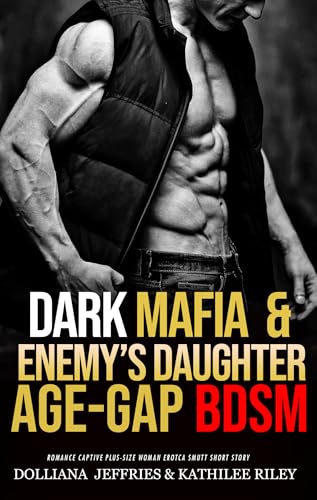*KIRKUS EDITORIAL on FIFTH AVENUE: “…filled with jeopardy and tension. This thriller, set in New York, offers an inside look at wealth, power, greed, and how these worlds intermingle and collide when one man seeks revenge and starts a catastrophic chain of events. The book is segmented into four parts, each representing a week, which keeps the action and events tight and condensed in a way that is well suited for the genre. …readers will find the characters vividly drawn and distinguishable. No one is without blemish, and each has some element that would elicit empathy from readers, which is ideal, as it will keep readers engaged and invested in the outcomes of the characters. Overall, the pacing is tight, fast, action driven, and ideal for what readers will anticipate from the genre.” –Kirkus Editorial
DESCRIPTIONS:
FIFTH AVENUE:
Look beneath all the power and all the wealth that represents New York City’s Fifth Avenue, and you’ll find greed, blood, revenge. In the international best-selling thriller “Fifth Avenue,” each intermingles within a revered society that is unprepared for what’s in store for it when one man finally strikes in an effort to destroy another man for murdering his wife thirty-one years ago.
Louis Ryan is that man. George Redman, his wife, two daughters and their close friends are his targets. Both men are self-made billionaires who came from nothing to stake their claim to Fifth Avenue. But when Louis Ryan hires an international assassin to literally rip the Redman family apart, a series of events that can’t be stopped catapults them all through a fast-paced, hard-edged thriller in which nobody is safe.
Secrets are revealed. Sex lives are exposed. The Mafia get involved. And George’s two daughters, Celina and Leana Redman, come to the forefront. More than anyone, it’s they who are caught in the throes of their father’s past as Louis Ryan’s blind desire to kill them all takes surprising turns in his all-out effort to see them dead.
RUNNING OF THE BULLS:
In the second book in the international best-selling “Fifth Avenue Series,” a former Wall Street titan who robbed the world of billions is now out of prison. Good for him, but not for those who put him there. Now, they are dying grisly deaths by the hands of two hired assassins.
Investigating is private investigator Marty Spellman, who soon learns that all isn’t what it seems as the twists pile up along with sheer number of the dead.
Spellman’s life is put on the line. His family is threatened. No one is who they appear to be. Who can he trust as the bulls of Wall Street start to run as the two assassins–Vincent Spocatti and Carmen Gragera–fully ignite their killing spree?
FROM MANHATTAN WITH LOVE:
An outcast billionaire’s daughter is caught at the wrong place at the wrong time.
An international assassin questions her sanity when she falls in love with the very assassin she’s charged to assassinate.
What happens when each collide? Chaos. Murder. Love. Revenge.
And redemption.
In this taut, 35,000-word novella, which is a prequel to the upcoming third novel in the Fifth Avenue series, “Park Avenue,” both women come together for the first time in an explosive story that threatens each of their lives, particularly when one woman breaks her own rules and dares to fall in love.
In “From Manhattan with Love,” she soon learns what she always feared. When it comes to real danger, there’s nothing more dangerous than love itself.
And here, for your reading pleasure, is our free excerpt:
BOOK ONE
FIRST WEEK
CHAPTER ONE
July
New York City
The bombs, placed high above Fifth Avenue on the roof of the Redman International Building, would explode in five minutes.
Now, with its mirrored walls of glass reflecting Fifth Avenue’s thick, late-morning traffic, the building itself seemed alive with movement.
On a scaffolding at the building’s middle, men and women were hanging the enormous red velvet ribbon that would soon cover sixteen of Redman International’s seventy-nine stories. High above on the roof, a lighting crew was moving ten spotlights into position. And inside, fifty skilled decorators were turning the lobby into a festive ballroom.
Celina Redman, in charge of organizing the event, stood before the building with her arms crossed. Streams of people brushed past her on the sidewalk, some glancing up at the red ribbon, others stopping to glance in surprise at her. She tried to ignore them, tried to focus on her work and become one with the crowd, but it was difficult. Just that morning, her face and this building had been on the cover of every major paper in New York.
She admired the building before her.
Located on the corner of Fifth and Forty-Ninth Street, the Redman International Building was the product of thirty-one years of her father’s life. Founded when George Redman was twenty-six, Redman International was among the world’s leading conglomerates. It included a commercial airline, office and condominium complexes, textile and steel mills, and, soon, WestTex Incorporated—one of the country’s largest shipping corporations. With this building on Fifth Avenue, all that stood in George Redman’s way was the future. And by all appearances, it was as bright as the diamonds Celina had chosen to wear later that evening.
“The spotlights are ready, Miss Redman.”
Celina turned and faced Hal Roberts, a member of the lighting crew. Later that evening, the spotlights would illuminate the red ribbon. “Let’s try them out.”
The man reached for the cell phone clipped to his belt. While he gave the men on the roof the go-ahead, Celina looked down at the list on her clipboard and wondered again how she would get everything done in time for the party.
But she would. All her life she had been trained by her father to work under pressure. Today was just another challenge.
Hal nodded at her. “Should be any time now,” he said.
Celina tucked the clipboard beneath her arm and looked up at the roof. She was thinking that, at this distance, she would never see if they worked when three of the ten spotlights exploded into flames.
For a moment, she couldn’t move.
Thousands of shards of jagged glass hurtled toward her, glinting in the sun.
She could see a great cloud of black smoke billowing above the building.
And fire—roaring, twisting toward the sky.
And one of the spotlights flipped through the air, rushing toward her and the ground.
Someone’s hand reached out and pulled her to safety just as the spotlight whooshed past her and slammed onto the sidewalk, where it cracked the cement and burst into a shower of fiery red sparks. For a moment, everything went silent—and then the glass hit in a deafening cascade of sound.
She was pressed against the building, frozen in fear as she watched traffic on Fifth veer right, away from the fallen spotlight, and snarl to a halt. There was nothing but the squeal of metal crushing metal, the shrilling car horns, and the frightened cries of passersby, some of whom had been cut from the falling glass.
Hal was in the street, looking up at the roof, shouting something into his cell phone. His face was flushed. The tendons stood out on his neck. There was so much noise, Celina couldn’t hear what he was saying. She took a tentative step forward, toward the crushed spotlight, and knew exactly what he was saying—the men on the roof were hurt.
She hurried into the lobby, shot past the waterfall, and stepped into her father’s private elevator.
The building was too tall. The elevator was too slow. No matter how quickly she raced to the top, it wasn’t fast enough.
Finally, the doors opened and she stepped onto the roof.
People were running and shouting and pushing. Some stood motionless in fear and disbelief. Those who had been standing near the spotlights when they exploded were either silent with shock, or crying in pain from the burns that ravaged their bodies.
She moved forward and nearly was run into by someone rushing for help. She watched the man pass, her lips parting when she realized his hair had been burned off.
She forced herself to focus. She had inherited her father’s strength and it was this that she called on now.
Through the smoke that whipped past her in soiled veils of black, she could see the damage—at roof’s edge, two of the remaining nine spotlights were engulfed in flames, their wires twisting on the ground beside them. Mark Rand, the man in charge of the lighting, stood near the spotlights, shouting orders and trying to gain control. Celina went over to him. Although she didn’t know what she would do or how she would help, she was damned if she would do nothing.
Rand pointed at one of the burning lights as she approached. “There’s a man trapped behind that spotlight. When the lights blew, he fell back and struck his head on the concrete. I’ve called to him, but he doesn’t answer or move. He’s unconscious.”
“Why isn’t anyone helping him?”
Mark pointed to the tangled mass of writhing wires. “No one’s going near them,” he said. “It’s too dangerous.”
“Then turn off the power.”
“We can’t,” he said, and motioned toward the generator at the opposite end of the roof. Although it was still running, it also was alight with flames. “It could blow at any moment.”
Celina’s mind raced. Through the smoke, she could see the young man lying on his stomach, his arms outstretched, the live wires curling inches from his body. She scanned the roof for something that could help him. Anything.
And then she saw it.
She led Mark to the crane behind them.
“This is the crane that lifted the lights up here?”
“That’s right.”
“Then use it to get rid of them.”
Mark looked at the spotlights. Their casings were coated with a hard shell of rubber to resist dents. It would not conduct electricity.
He scrambled into the crane.
Celina stood back and watched him bring the enormous steel hook about. It swung swiftly through the smoky air, glinted once in a dim band of sunlight and hovered over one of the burning spotlights in what seemed like seconds. It took several tries before he hooked the tip of the spotlight’s casing. But when he finally lifted the spotlight into the air, one of the wires hissing beneath it rested against the fallen man’s forearm, sending him into convulsions.
Celina’s hands flew to her mouth. She watched the man’s head arch back into an impossible position. Reacting instinctively, she rushed forward and knelt beside him—just as Mark Rand swung the spotlight over her.
With a start, he pulled back hard on the controls, lifting the spotlight away from Celina with a jerk, causing it to jump and waver on its hook. For one terrible moment, he felt sure it was going to jump the hook and fall on top of her. The spotlight teetered in the air, no more than ten feet above her, spewing black smoke as it swayed on its metal line. Wires snapped beneath it. They almost touched her back. But he got it under control and moved it away from her until it unplugged itself and went dark.
A member of the lighting crew went to Celina’s side. Together, they pulled the young man to safety. Celina knelt over him. The man’s body was sheathed in perspiration. His skin was the color of chalk. She gripped him by the shoulders and gently shook him. She noticed his name sewn into the pocket of his denim work shirt and shouted it once, twice, but there was no response.
Her mind raced. She had been trained in CPR, but that was in college and now she struggled to remember how to perform it. She tilted his head back to clear the airway and then ripped off his shirt, exposing his chest. She looked to see if it was rising and falling, but it wasn’t. She listened to see if he was breathing, but he wasn’t. She placed the back of her hand to his mouth, but felt nothing. She checked for a pulse in his neck, but found none. She pressed her ear to his chest. Nothing.
For a moment, she thought her own heart had stopped.
He was dead.
Immediately, she covered his mouth with her own, pinched his nose, and forced two sharp breaths into his lungs. She checked once more for a pulse, found none, and gave several compressions to his chest, wishing she could remember exactly how many she was supposed to administer. She stopped after the twelfth and repeated the procedure. And then she did it again.
But the man didn’t respond.
Fighting to remain calm, Celina looked up for help just as the New York City Fire Department stormed the roof, hoses and axes in hand. She turned to her right and saw Mark leaving the crane. The final spotlight was removed and he was coming toward her. “What’s the matter with you?” he shouted. “You could have been killed—” The words died in his mouth when he saw the man lying beside her.
“Get help,” she said. “Move!”
She bent back over the man, again pressing on his chest, again forcing air into his lungs.
But there was no response.
Panic rising, her shoulder-length blonde hair hanging in her face, she repeated the procedure, knowing that time for this man was running out.
But her efforts seemed in vain. No matter how hard she tried to revive him, the man just lay there, motionless.
And so she went for it.
Raising her fists above her head, she slammed them down onto the man’s chest, causing him to jerk slightly upright. He expelled a rush of air. “Breathe!” she shouted.
To her surprise, he did. His eyes fluttered. Color rushed to his cheeks and he gagged and coughed and vomited. Celina felt a surge of elation and turned him onto his side so that he wouldn’t choke. Tears streamed down his face as he pulled in great gasps of air. Celina held him on his side. “It’s all right,” she said. “Just breathe. You’re safe now. It’s all right.”
When the paramedic reached them, she knelt beside Celina, cleaned the vomit from the man’s face and covered his nose and mouth with an oxygen mask. Another woman appeared and covered him with a blanket. Celina stood and watched with Mark as relief washed over the man. He drew deeply on the clean air.
For him, the nightmare was over.
“Where did you learn that?” Mark asked.
Celina’s face was pale. “My roommate in college had a sister who was a nursing student. She used to teach us things I never thought I use. One of them was how to perform CPR.”
“Not so worthless,” he said.
Together, they looked at the spotlights Mark had removed. Although they were no longer burning, the air around them was dim with smoke.
“Why did they explode?” she asked.
Before Mark could respond, a fireman approached and answered her question instead. “I’ll show you.”
She exchanged looks with Mark and stepped over to one of the smoldering lights. There, they watched the man pull two frayed, blackened wires from the now empty light socket. “Do you see these wires?”
They nodded.
“They shouldn’t be there.” He bent to his knees and asked Celina and Mark to do the same. On the back of the spotlight, he pointed to a small hole where the metal was contorted and twisted out of shape. “This hole shouldn’t be there, either.”
Celina braced herself for what was coming and the uproar it would cause.
“Off the record?” he said.
“Yes.”
“It’s not confirmed, but it’s obvious. The spotlights were rigged with plastic explosives. When the power was turned on, the electricity came into these two wires and set off the bombs.”
“Who would plant three bombs here?” she said.
“That’s for you and the police to figure out.”
CHAPTER TWO
George Redman left the limousine and moved to the front of the Redman International Building just as reporters engulfed him.
He pushed through the crowd and tried to ignore the cameras and microphones being thrust in his face. His world was the twin glass doors ahead of him. He would say nothing until he spoke to Celina—but that didn’t stop the press or their cacophony of voices.
“Can you give us a statement?”
“Do you think this has to do with your plans to take over WestTex? The recent decline in Redman International’s stock?”
“Who’s responsible for this, Mr. Redman?”
George glanced at the reporter who asked that question and then pressed forward, thinking it was the best question yet. Who is responsible for this?
Celina was waiting for him beyond the doors and, as George embraced her, he thought she never looked or felt better.
“Are you all right?” he asked.
“I’m fine.” Knowing her father as well as she did, Celina said, “Really. I’m fine.”
“What happened?” he asked.
Celina explained everything. When she told him about the man trapped behind the spotlight, she raised her hands in apology. “I tried to keep what happened to him from the press, but it was impossible. The reporters got wind of it before I could do anything.”
“Don’t worry about it,” George said. “This wasn’t our fault. If anything, they’ll be congratulating you for saving that man’s life. Was anyone else hurt?”
She told him about the men who had been burned.
“So, we’re facing lawsuits.”
“Not necessarily,” Celina said. “I sent Kate and Jim from PR to speak to the families of those who were hurt. If all goes well, each wife will be driving a Lexus by week’s end, their kids will have their college educations paid for, money will be in their bank accounts—and we’ll have signed documents indicating that each family has waived all rights to sue.”
Something caught her eye and she turned. George followed her gaze. Across the lobby, three men in dull yellow jackets stepped into one of the elevators with two large dogs. “Bomb squad,” Celina said. “They arrived just after the police and fire department.”
“How long will they be?”
She checked her watch. “A full crew is here,” she said. “They’ve already covered the first eighteen floors. With the help of those dogs, I wouldn’t be surprised if they’re out of here in the next few hours—leaving us time to make a final statement to the press and last-minute preparations for the party.”
“If anyone shows,” George pointed out.
“They’ll show,” she said. “If only because they’ve paid ten grand per couple, they’ll show. Besides, when has one of Mom’s parties ever failed?”
George raised an eyebrow. She had a point there.
They moved to the bar.
“So, who did it?” Celina asked.
“No idea. I’ve been racking my brain since I got your call.”
“I phoned the company who supplied the spotlights and was told that each light was inspected before delivery. If that’s true—and I’m not saying it is—then that can only mean that someone here planted the bombs.”
“Have the police questioned the lighting crew?”
“They’re being questioned now, but what I can’t figure out is why a more powerful bomb wasn’t used. The three that went off were low-impact explosives. They were designed to cause only minor damage.”
“I’ve been wondering the same thing.”
“So, what is this?”
George shrugged. “Who knows? Maybe someone hates the design of our building.”
Somehow, her father usually managed to keep his sense of humor, even in situations as difficult as this. “What’s the word on RRK?” she asked.
“If they were nervous about backing us before, they must be terrified now.”
Roberts, Richards, and Kravis—better known as RRK—was the investment group George hired to help finance the takeover of WestTex Incorporated. Although George had management, without RRK’s $3.75 billion war chest, skills, and the banks they had locked up, he wouldn’t be able to complete this deal on his own.
“I haven’t heard a word,” he said. “But I’m sure I will by this evening. This is probably the excuse Frank Richards has been waiting for. He’s never been in favor of this takeover. If he thinks someone rigged those spotlights to make a statement about our falling stock, or to protest our interest in WestTex, he won’t think twice about pulling out—regardless of any deal we have with him.”
Celina knew that was true. While other banks and investment groups might be willing to take the risk her father was offering, few were as experienced as RRK when it came to LBOs.
“Have you seen your sister today?” he asked. “Your mother was looking for her earlier. She was supposed to help her prepare for the party.”
“And Mom thought she’d show?” Celina tilted her head. “Leana probably doesn’t even know what happened here today.”
“I need to call your mother,” he said. “She made me promise to call as soon as I knew something. If you see Leana, tell her your mother needs her.”
Although she knew she wouldn’t see Leana until later that evening, Celina agreed and followed her father to the door.
The press waited there, cameras and microphones raised. “You can use one of the side entrances,” she said.
“And lose their sympathy at the very moment I need it most? Forget it.”
And then he was gone, through the doors, swarmed by reporters and finally answering whatever questions he could. Celina watched him for a moment, listened to the crowd’s frenzied shouting, but then she stepped away and resumed her work. There was still much to be done before the party.
* * *
The sun was just beginning to set behind Manhattan’s jagged horizon when Leana Redman left Washington Square.
She had been in the park since morning, reading the latest edition of Vogue, talking with those people she knew, watching those she didn’t.
Now, as she passed the big empty fountain and neared the white arch, she watched the many children playing with their parents, hesitated when she saw a father twirl his young daughter in the air, and then kept walking, oblivious to the man taking pictures of Leana.
Evening began to descend, but the air was balmy and she was glad to be wearing only shorts and a T-shirt. At twenty-five, Leana Redman had a long, thick mane of curly black hair, which, to her dismay, she had inherited from her father. Although she wasn’t considered as beautiful as her older sister, there was something about her that always made people look twice.
She left the park and moved up Fifth. People jammed the sidewalks. A group of five teenage boys darted past her on skateboards, screaming and shouting as they shot through the crowd in a colorful blur of red and white and brilliant shades of green.
Leana lifted her face to the warm breeze and tried to focus on the problem ahead—tonight’s party. She had planned on not attending when her mother, sensing this, demanded her presence. “Your father will be expecting your support.”
The irony almost made Leana laugh. He’s never needed it before.
Four hours ago she was supposed to have met Elizabeth at their Connecticut estate and help her with last-minute preparations for the party. Why her mother wanted her help was beyond Leana—especially since they both knew that Celina would take care of everything. As she always does.
She stopped at a crowded newspaper stand. A man moved beside her. Leana gave him a sidelong glance. Tall and dark, his face lean and angular. He wore an unseasonably warm black leather jacket that exposed a broad chest and the sophisticated digital camera that hung around his neck.
Leana sensed that she’d seen him before.
It was her turn in line. Ignoring the many newspapers and magazines that carried front-page pictures of her father, Celina, and the new building, she asked the attendant for the latest issue of Interview, paid him and then tucked the magazine into the colorful, oversized Prada handbag that hung at her side.
She looked again at the man in black leather, saw that he was staring at her. She started up Fifth, aware that he had purchased nothing and now was following her. It wasn’t until she glimpsed his reflection in a storefront window that she realized he was taking photos of her.
Leana turned and was about to ask what newspaper he worked for when she saw, tucked between the folds of his black leather jacket, the butt of a revolver.
Startled, she looked at the man’s face just as he lowered the camera. When he smiled at her, she recognized him. Earlier that morning, in the park, he had been sitting on the bench next to hers. She thought then that he had been watching her. Now, she knew that he had.
“Tonight,” the man said, “after these pictures are developed, I’m going to pin them to the wall beside my bed with the others I have of you.” His smile broadened, revealing even white teeth. “And soon—before you know it, really, Leana—I plan on taking you home with me and showing them to you, myself.”
She turned away from him with such speed, the magazine toppled out of her handbag and fell to the pavement. The pages fanned open. Ahead of her, a taxi dropped off a fare.
Leana rushed to it. The man followed.
“Wait!” she shouted, but the cab pulled away. A quick glance over her shoulder confirmed the man was still there. The butt of his revolver winked in a band of sunlight. Leana was about to shout for help when another cab pulled to the curb. Frantic, she ran toward it, her heart pounding, and stepped inside just as an elderly couple stepped out.
She slammed the door shut and locked it just as the man tried opening the door. His face was only inches from the glass and he looked furious, as if he had been cheated out of a prize. He slapped his hand against the glass and Leana recoiled.
The cab wasn’t moving. Leana looked at the driver, who was waiting for a break in traffic. “He’s got a gun!” she shouted. “Get me out of here!”
The cabbie looked at the man, saw the rage on his face and punched the accelerator, nearly causing an accident as he cut into traffic and raced toward Washington Square.
Leana looked out the back window. The man was on the sidewalk, his camera hanging around his neck, his arms at his side.
“I didn’t know you were in trouble,” the cabbie said. “Are you okay? Do you want me to take you to the police?”
She considered it, but thought better of it. “By the time we turn the corner, he’ll be gone.” She leaned against the cab’s torn vinyl seat. “Just drop me off at the new Redman International Building on Fifth and Forty-Ninth. My car’s there.”
“I wouldn’t count on it.”
“What’s that supposed to mean?”
“You’ve gotta be kidding me.”
“I don’t know what you’re talking about.”
“Doesn’t anyone pay attention to the news anymore?” He spoke slowly. “This morning, three bombs exploded on top of the building.”
Leana’s face paled. Her father and sister were there today, preparing for the party. “Was anyone hurt?”
“A few people. One guy would have died if it wasn’t for Celina Redman. She saved his life.”
Leana’s jaw tightened. “How?”
“Through quick thinking, the guy on the radio said. She’s a hero.”
“What she is is a fucking bitch.”
The cabbie stopped for a red light and glanced at her in the rearview mirror, not quite sure he heard her right. “You know the Redmans, or something?”
Leana wondered again why she had been concerned for her family’s safety. After all the times her parents ignored her, after all the times they chose Celina over herself, how could she possibly have any feelings for them besides contempt?
“No,” she said. “I don’t know them at all.”
CHAPTER THREE
High above Fifth Avenue, Louis Ryan sat in his corner office, his back to a wall of windows and the new Redman International Building that towered in the near distance.
He was at his desk and gazed at the frosted letters carved into the glass that covered it: Manhattan Enterprises. The company he founded thirty-one years ago was now one of the world’s leading conglomerates.
Only Redman International surpassed it.
Earlier that day, Louis’ private war against George Redman began—harassing Leana Redman, exploding the spotlights as planned. And now, the gala opening of the Redman International Building was about to begin.
Louis looked up Fifth Avenue, toward the activity surrounding Redman International’s red-carpeted entrance. Judging by the crowd of reporters and the string of limousines that snaked down the avenue, one would think that every influential man and woman in the world came to show their support for George Redman. The fact that Louis did business with many of these men and women made him look away.
Instead, he focused on the black-and-white photograph of his wife across his desk.
In its heavy silver frame, the photo had faded over the years since Anne’s death, but her beauty shined through.
Louis studied her face and thought back to the few years they had shared together. She had been his first love, his champion, and best friend. She had given him his best memories. She also gave him a son and, although he and Michael had their differences, whenever Louis saw him, he was reminded, through Michael’s features alone, of his beloved Anne.
The wife George Redman robbed him of.
Louis thought about all that was coming Redman’s way. The time was now. At last, George Redman was vulnerable. When Anne died, Louis promised that both he and Michael would make Redman pay for what he did to her. He promised to destroy George Redman, his family, and the Redman empire. He would make them all feel the pain that he had felt for years.
He glanced down at the front page of the Wall Street Journal. The banner headline read:
REDMAN STOCK PLUNGES TWENTY-THREE POINTS
PROPOSED TAKEOVER OF WESTTEX MAKES STOCKHOLDERS NERVOUS
Well, that’s too bad, Louis thought.
He opened a desk drawer and reached for the latest issue of People magazine. On the cover was his son, Michael Archer, the movie star and bestselling novelist. Even as he aged, it was clear that Michael inherited his looks from his mother, from the dark hair to the cobalt-blue eyes.
As he studied his son’s face, Louis wondered how Michael would react when he learned that George Redman murdered his mother. He was only three when it happened. To save his son the pain and anger he had to endure, Louis raised Michael thinking his mother’s death was an accident. But despite the tragedy that should have brought them closer together, it had driven them apart because Louis needed to devote his time to Manhattan Enterprises in an effort to secure their futures.
They never had been close. In fact, until last week, Louis hadn’t seen or heard from Michael in sixteen years.
And all because of George Redman, he thought.
He put the magazine down and turned to watch the limousines inch their way down the avenue. He wondered which one his son was in. Last week, when Michael came unannounced to his office, Louis was surprised by the change in him. Michael seemed older to him in person than on film. His eyes had hardened over the years, erasing his former look of innocence. Perhaps struggling in Hollywood had been good for him. Maybe he finally had grown up.
But, of course, he hadn’t.
When Michael explained the predicament he was in, that his life was in danger, Louis listened, feeling the same sense of shame and anger he felt when Michael left home for Hollywood at the age of eighteen. Even now, Louis could hear Michael asking him for help. Even now, he could see the look of surprise on Michael’s face when he learned that he would only get the help he needed if he went to the opening of Redman International and met Leana Redman.
* * *
In his father’s black Lincoln limousine, Michael Archer looked through the tinted window at the glittering New York skyline and thought he’d rather be anywhere else than here.
He wasn’t happy to be back. He hated what he saw. He left this place once and hadn’t looked back until a few weeks ago, when he had no choice.
He saw his father all around him, from Louis’ towering office and condominium complexes on Fifth to the lavish hotels he’d passed earlier on Park and Madison. Even if no one knew that he was Louis’ son, the idea that his father’s ego had spread like a disease over this city embarrassed him.
It was ironic, he thought, that now he was being thrust back into a life he once ran from. More ironic, still, that his father was the only person who could help him.
On the seat beside him was the manila envelope Louis gave him. Michael reached for it, turned on the light above his head and removed several photographs of Leana Redman.
Most were pictures of her reading in Washington Square, but some had been taken of her standing in line at a newspaper stand. Others were of her running to catch a cab.
Michael studied her face and wondered what his father was getting him into. Why was it so important that he meet Leana Redman? And why would Louis refuse to give him the money he needed if he didn’t meet her?
The limousine caught a string of green lights and sailed down Fifth. Ahead, Michael could see the bright, resilient spotlights fanning across the Redman International Building, illuminating the red ribbon in sharp, brilliant sweeps.
He put the photographs away. For now, he would do as his father wished.
After the recent threat against his life, he hardly had a choice.
CHAPTER FOUR
Excitement in the lobby was building.
From his position beside the glimmering waterfall, Vincent Spocatti watched the flurry of activity surrounding him.
Under Elizabeth Redman’s direction, uniformed maids checked place settings, polished the lobby’s gleaming accents, made last-minute touches to the enormous flower arrangements that adorned each of the two hundred tables for eight. Barmen in black dinner jackets stocked glasses, stocked bottles, stocked ice. Behind him, members of the thirty-four piece band settled into their seats and prepared for the busy evening ahead.
Considering the bombs that exploded earlier, Spocatti was impressed by how seamlessly everything was coming together. If it weren’t for Elizabeth Redman and her daughter, Celina, he knew things wouldn’t be going as smoothly.
He watched Elizabeth move across the lobby to the bar. Like her daughter, Celina, Elizabeth Redman was tall and slender. Her blonde hair came just to her shoulders and framed an oval face that suggested intelligence and a sense of humor. The diamonds at her neck, wrists, and ears were competitive, but not aggressive. She knew the crowd she’d invited. She knew how to work them. It was clear.
She stepped passed him and Spocatti turned to catch a glimpse of himself in the huge mirrored pillar to his right. Where the gun pressed against the breast pocket of his black dinner jacket, there was a slight bulge—but Spocatti paid little attention to it. He was a member of security and had been hired this evening to protect George Redman, his family, and their guests from a possible intruder.
The irony almost made him laugh.
He took in his surroundings. Although security appeared tight, it was sadly loose. After today’s bombing, George Redman had hired twenty-five men to stand guard over tonight’s gala. As far as Spocatti was concerned, every one of them was an amateur, which was just fine with him.
Now, he should have no problem slipping into one of the elevators and getting the information Louis Ryan needed on the takeover of WestTex Incorporated.
* * *
Elizabeth Redman moved again—this time in his direction. Although she seemed unaffected by it, Spocatti sensed by the confident way she held herself that she was very much aware of the power she wielded in this city.
She approached with a smile and an extended hand.
“I’m Elizabeth Redman,” she said. Her grip was firm.
“Antonio Benedetti.”
“I’ve always loved Italy,” she said.
Well, that’s rich. “What can I do for you, Mrs. Redman?”
“Nothing much,” she said. “Just see to it that no bombs explode here this evening and I’ll be grateful. Can you handle that?”
“Of course.”
Elizabeth lifted her head. Her eyes hardened as she studied him. “Maybe,” she said. She motioned to the other members of security. “As for these other men, I’m not so sure.”
“Neither am I.”
“You don’t think they’re capable of protecting us?”
“To put it plainly, no.”
“They’re all experienced,” she said.
“Really? Who taught them? I’ve been watching them make mistakes for the past few hours. They aren’t professionals.”
“And you are?”
“I am.”
The deep sound of a bass guitar plucked behind them. Elizabeth looked at Spocatti and said, “Mr. Benedetti, this morning three bombs exploded on top of this building. Several men were hurt, my daughter nearly killed. Tonight, I think we all know that anything could happen—and it possibly might. With such amateurs on our security staff, it looks as if you’re going to have your work cut out for you. I hope everything goes well.”
Amused, Spocatti watched her walk away.
George and Celina Redman arrived ten minutes before their guests.
They left the family elevator together and moved in two separate directions. Spocatti watched Celina, stunning in her red-sequined dress. Her stride was long and determined—she moved with her mother’s confidence.
Elizabeth stood at the canopied entrance, speaking to the four members of security stationed there. Celina placed a hand on her mother’s back as she approached one of the guards, plucked the cigarette from the man’s hand, dropped it into a nearby ashtray, and turned him to face the windows. She pointed at the street.
The woman was good. Not only had she saved a life earlier this morning, but she also was keeping security focused so that no harm came to anyone this evening.
When it came time to kill her, it would be a waste.
George Redman was in a world of his own. He moved about the lobby, looking with pride at the tables, the flowers, the elaborate place settings. Spocatti knew from Louis Ryan that owning this building on Fifth Avenue was George Redman’s dream. He knew how hard the man had worked for it, how happy he was that it was finally his.
Spocatti glanced at his watch. Too bad it won’t be yours for long.
Behind him, the band began playing “My Blue Heaven.” Spocatti looked across the lobby and saw through the windows the first guests alighting from their limousines.
The party was beginning. George and Elizabeth and Celina were at the entrance, waiting to greet, to hug, to be congratulated. It wasn’t until Spocatti slipped behind the waterfall and stole into one of the elevators that he realized the youngest daughter wasn’t here.
The outcast, he thought fleetingly, was missing.
* * *
The elevator doors whispered shut behind him.
Spocatti reached into his jacket pocket and removed the computer-coded card Ryan gave him earlier. He inserted it into the illumined slot on the shiny control panel, punched into the keypad the eight-digit combination he had set to memory, and waited.
For a moment, nothing happened. Then a computerized voice said, “Clearance granted, Mr. Collins. Please select a level.” So it was somebody named Collins who sold out to Ryan, Spocatti thought. He pressed the glowing button marked 76.
The elevator began its ascent.
Spocatti removed the card from the slot and withdrew his gun. As the car slowed to a stop, he stepped to one side. The doors slid open. Sensing, judging, he peered out, saw no one, and relaxed.
Now for the fun part.
The long, well furnished corridor featured paintings by the old masters on the ivory walls, a mahogany crafted door at the end of the hall, and a wood floor that gleamed as though it had just been waxed. On a delicate side table, a Tiffany lamp cast amber rainbows of light.
Spocatti leaned back inside the elevator. To any one else, this would have seemed nothing more than a richly appointed corridor. To him, it was an obstacle course.
He holstered his gun, removed a slender pair of infrared glasses from his jacket pocket, and put them on. Instantly, everything took on an eerie red glow. He had seen no video cameras in the hallway, but that didn’t mean there weren’t any. The paintings could be decoys. He’d need to risk it.
He looked back into the corridor. Directly in front of the elevator was a thin beam of light that would have been invisible without the glasses. Moving carefully, he dipped beneath it, knowing that if he accidentally severed it, a sensor would detect the difference in temperature and he wouldn’t hear the silent alarm alerting the police.
He moved on, the web of beams becoming more difficult to elude as he neared the door that concealed Redman International’s vast cluster of computers. At one point, he had to crawl on his stomach. A moment later, he had to jump twice and roll. I could have already tripped the alarm and not even know it, he thought. The thrill he felt from not knowing charged him.
He reached the door. Spocatti knew least three inches of steel reinforced it. Ryan told him there would be a small keypad at the base of the door that, upon entering a six-digit code, not only would open the door, but also would turn off all surveillance equipment.
He knelt, found the keypad—and saw that it was protected by a series of beams crisscrossing in front of it. He swore beneath his breath and looked again at his watch. Ten minutes had passed. I want to be out of here in thirty.
He studied the beams. Slanting in various angles from floor to ceiling, they formed a grid-like pattern that was so small in design, his fingers would almost certainly sever one of them if he tried reaching through the tiny, diamond-shaped gaps. He needed something long and thin to stick through the openings and tap out the code. Like a pencil, perhaps. Or a pen. But he had neither. Mind racing, he looked around the room, but there was nothing here he could use and it infuriated him. He had come so close.
And then it struck him. The answer to his problem was on his head.
He removed the glasses from his face and looked at the bows that extended from the green frames. They were long and thin and curved at the end. One would fit perfectly through the tiny gaps. He snapped off a bow. Then, while holding the glasses to his eyes with one hand, he gingerly went to work with the other.
Soon, it was over. He entered the code Ryan gave him, the red infrared beams winked off, and the door leading to the computer room swung open on its own.
Spocatti withdrew his gun and stood. He made a quick surveillance of the room and saw nothing inside save for a hive of computers.
He went to them and knew he was in trouble the moment he turned on a computer. As the screen flickered to life, he noticed on the front of the computer an illuminated slot that differed slightly from the slot on the elevator’s control panel. And then the following words appeared on the screen: PLEASE SWIPE ACCESS CARD.
The only card Ryan gave him was the computer-coded card that he had used to access the elevator. He removed it from his jacket pocket, swiped it and waited. The screen went blank. A moment later, a new message flashed on the screen: ACCESS DENIED.
And there it was—Ryan screwed up. He hadn’t supplied him with the correct card. Spocatti felt a spark of rage, but stilled it. He could hack the machine, but there was no time. He turned the computer off and looked around the room. There were no file cabinets here, only desks with locked drawers in which he assumed Redman would keep nothing vital. Spocatti knew that everything he needed was in these computers…or safe in Redman’s office.
He looked at the time on his watch. He still had twenty minutes before he wanted to be back in the lobby. Ryan told him that Redman’s office was on the third floor of his triplex.
If he hurried….
CHAPTER FIVE
High above Redman International in her parents’ triplex, Leana Redman stood at a window at the end of a long hallway. Below her, she saw endless line of traffic on Fifth.
She was thirty minutes late for the party. Her parents would be irritated and the press would be wondering where she was—but that’s exactly what Leana wanted. In no way did she want to be part of this event. And yet she knew she had to go. If she didn’t, her parents would disown her.
Before she went, she decided to have a drink first.
In the library, she bent to the small refrigerator that was at her feet and removed a bottle of champagne. She poured herself a glass and thought again of the man who had followed her earlier. His threat still chilled her. She wondered if she had made a mistake by not going to the police and knew now that she probably had.
She went to her father’s desk, turned on the green-shaded lamp and sat down. On it were several framed photographs of the family. Leana chose one of her and Celina. Here, they were children—Leana, seven; Celina, eleven—and she was surprised to see how happy they looked. In the meadow behind their Connecticut home, the girls were holding hands, resting against a tree stump and wearing huge straw hats that cast their faces in shadow. Behind them, Elizabeth was laughing, her blonde hair shining in the sun.
She wondered when her feelings for Celina changed. The answer came at once. When Dad began taking her to Redman International.
It was late. No matter how much she didn’t want to go, she had to join the party. Turning the picture face down on the desk, she flipped off the light and left for the bar. As she bent to put the bottle of champagne back into the refrigerator, she caught a glimpse of herself in the windows beside her. There also was something else in the reflection. The door to the library was opening.
She felt a start and turned. The door was almost fully open now. A flag of light spilled into the room. She was about to ask who was there when a man peered inside. He didn’t see her—Leana was at the opposite end of the room, partly concealed by shadow.
He stood in the doorway, sensing, judging, his concentration intent. Something in his left hand. A gun.
She stood completely still, barely breathing. Although she wasn’t absolutely certain, he resembled the man who had followed her earlier…
Panic rose in her. She receded deeper into shadow and wondered how he had gotten up here without a card to access the elevator. She watched him enter the room. He didn’t walk into it, but eased into it like a cat, his gaze constantly changing as he moved toward her father’s desk.
She could not let him see her.
At the end of the bar was a bookcase that extended two feet from the wall. On one side was a small opening that she could hide behind. When the man wasn’t looking in her direction, Leana nudged toward it. Her dress rustled when she moved. The man heard it, whirled on his heel and took aim. Leana froze. Their eyes met.
“Who the hell are you?” she shouted.
The man stepped away from her father’s desk and lowered his gun. After a moment’s silence, he said, “There you are.”
Leana was taken aback. The man was holstering his gun, seemingly oblivious to her fear. “I asked who you are!”
“Antonio Benedetti,” he said. “A member of security.” He stepped forward and she saw that he wasn’t the man who had followed her earlier, but one who resembled him. Her heart pounded. “What are you doing here?”
“Looking for you,” he said. “You’re late for the party. Your parents asked me to find you.”
“And you needed a gun for that?”
“Miss Redman,” he said, “after what happened here this morning, every member of security is carrying a gun.”
She studied him. He was tall and dark, his features sharp and attractive. There was a coolness about him that she found appealing. She took a breath as he stepped over to the door and held it open for her. “Your mother’s furious,” he said. “If you’re not in the lobby soon, she’ll probably have me fired. Are you coming?”
Leana hesitated, then started toward the open door. She walked past the man and said, “My sister saved a life today. The least I can do is save a job. Let’s go.”
* * *
The elevator dropped like a stone.
As they neared the lobby, Leana looked up at the elevator’s lighted dial and watched the floors race by. She heard the crowd’s rising din, felt beneath her feet the driving beat of the band, and became nervous. She never fit into these situations. She would know few people here. This was her parents’ and sister’s world, not hers. So, why had she been asked to come?
She looked at the man standing beside her and saw that he was looking at her. Again she thought about how handsome he was. She glanced at his left hand and saw no ring. Promising, but life had taught her that no ring meant nothing. “What do you think the chances are of this place blowing up tonight?” she asked.
Her question didn’t faze him. “Less than zero.”
“Oh, come on,” Leana said. “Don’t you think my father has something else planned to capture the world’s attention? Like a sniper, perhaps? Or maybe a fire?”
He cocked his head at her. “You think your father rigged those spotlights with explosives?”
“It wouldn’t surprise me.”
“But people were hurt, your sister nearly killed.”
“Quelle domage.”
“I still don’t see your point. Why would your father want to do something as ridiculous as that? It makes no sense.”
“Free publicity, Mr. Benedetti, makes a lot of sense.”
He leaned against the wall and studied her. “You don’t believe what you’re saying, do you?”
Leana’s eyes flashed. “That doesn’t matter,” she said. “It’s always interesting to see what other people will believe.”
The car slowed to a stop. The doors parted to a sudden blast of cool air, music, and noise. Leana stood there a moment, undetected, and looked around the crowded room. While she saw no friends of hers, it seemed that wherever she looked, she was reminded of her sister. From the waterfall to her right to the Lalique crystal chandeliers that shined above her head, Celina’s influence was clear.
Once, when Redman International was nearing completion, Leana asked her father if she could help decorate the lobby. George dismissed her and said it was a job for professionals. He would never know the hurt Leana felt when it was decided that Celina would decorate the lobby. George would only sense Leana’s anger afterwards and pass it off as one of her moods.
They left the elevator. “Well,” Benedetti said, “it was nice talking to you.”
“And to you,” Leana said. “Keep your eye out for any snipers. You never know when one will pop up.”
Leana watched him move into the crowd, where this time she saw a few familiar faces in the endless sea of heads. Looking over at her parents and sister, she saw that they were still greeting guests—George laughed, Elizabeth chatted, Celina hugged.
Leana wanted to hurl.
She started toward them, her gaze shifting from George to Elizabeth to Celina. One of these days, they’ll respect me as much as they respect her. But even as she thought this, she wondered how she’d pull it off. She took her position next to Celina in the reception line and sensed her parents’ disappointment, frustration, and anger, though neither said a word.
Leana supposed she should be happy for the way her presence—or lack thereof—had affected them, but she wasn’t. Instead, a part of her felt guilty for coming late.
Outside, the paparazzi went wild as Michael Archer emerged from his limousine and stepped into the lobby. Cameras flashed. The crowd of onlookers cheered. Leana recognized him on sight. “I didn’t know Mom sent him an invitation,” she said to Celina. “I read one of his books a few months ago.”
Celina looked puzzled. “Mom didn’t send him an invitation. I went over the guest list twice with her. Michael Archer’s name was nowhere on it.” She gave her sister a look. “And where have you been?”
“Flossing.”
Leana looked at Elizabeth, who was watching Michael Archer shake hands with George. She knew her mother had no tolerance for those who crashed parties—especially her own. She wondered how she would handle this.
“I’m sorry,” Elizabeth said politely as Michael approached. “But I’m going to have to ask you to leave.” Her voice was firm. She ignored his hand. “This is a private party.”
In the silence that fell, George and Celina turned to listen. Leana watched Michael. “I apologize for intruding,” he said. “But I understand that you’re raising money this evening for children with HIV, and I wanted to do something to help.” He reached into his jacket pocket and withdrew a slip of paper. He handed it to Elizabeth. “I hope this will.”
Elizabeth looked at the check, then coolly back at Michael. “$100,000 is very generous,” she said.
“I work in the entertainment industry,” he said. “HIV is prevalent there. It’s the least I could do. It’s a cause I believe in.”
Although Leana doubted he knew it, Michael Archer had just handed her mother five million dollars. Perhaps six. Once word got around that he gave her a check for $100,000, the other guests would scramble for their checkbooks, desperate not to lose face. Elizabeth knew it, but she didn’t show it.
“I apologize,” she said to him. “This is very kind of you. We would be pleased to have you stay. Would you?”
The relief that crossed Michael Archer’s face was unmistakable. Leana lifted her chin at the same moment he turned to look at her. Their eyes met and Michael smiled. “Mrs. Redman,” he said, “it would be my pleasure.”
Continued….
Click on the title below to download the entire book and keep reading

















 Christopher Smith is the #1 international best-selling author of “Fifth Avenue,” its sequels “Running of the Bulls” and “From Manhattan with Love,” as well as “Bullied,” “Revenge,” “Witch” and “War,” all four of which deal with the subject of bullying. His newest thriller is “A Rush to Violence,” which will be a three-book series. “Park Avenue” hits at the end of 2012. For fourteen years, Smith was the film critic for a major newspaper in the Northeast. For eight years, he appeared weekly on NBC affiliates, and two years nationally on the E! network. He has written over 4,000 reviews and he has been named Best Critic for 2010 by the MPA. He has published two previous books in his Netflix “Queued” series, which are compilations of hundreds of his film reviews. He lives in Maine.
Christopher Smith is the #1 international best-selling author of “Fifth Avenue,” its sequels “Running of the Bulls” and “From Manhattan with Love,” as well as “Bullied,” “Revenge,” “Witch” and “War,” all four of which deal with the subject of bullying. His newest thriller is “A Rush to Violence,” which will be a three-book series. “Park Avenue” hits at the end of 2012. For fourteen years, Smith was the film critic for a major newspaper in the Northeast. For eight years, he appeared weekly on NBC affiliates, and two years nationally on the E! network. He has written over 4,000 reviews and he has been named Best Critic for 2010 by the MPA. He has published two previous books in his Netflix “Queued” series, which are compilations of hundreds of his film reviews. He lives in Maine.